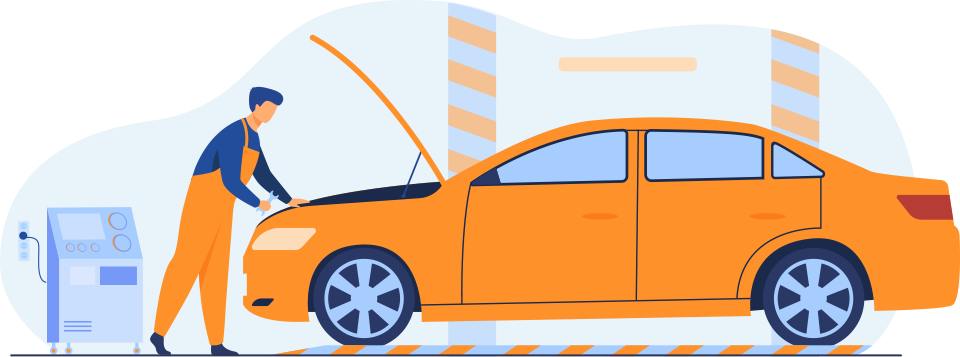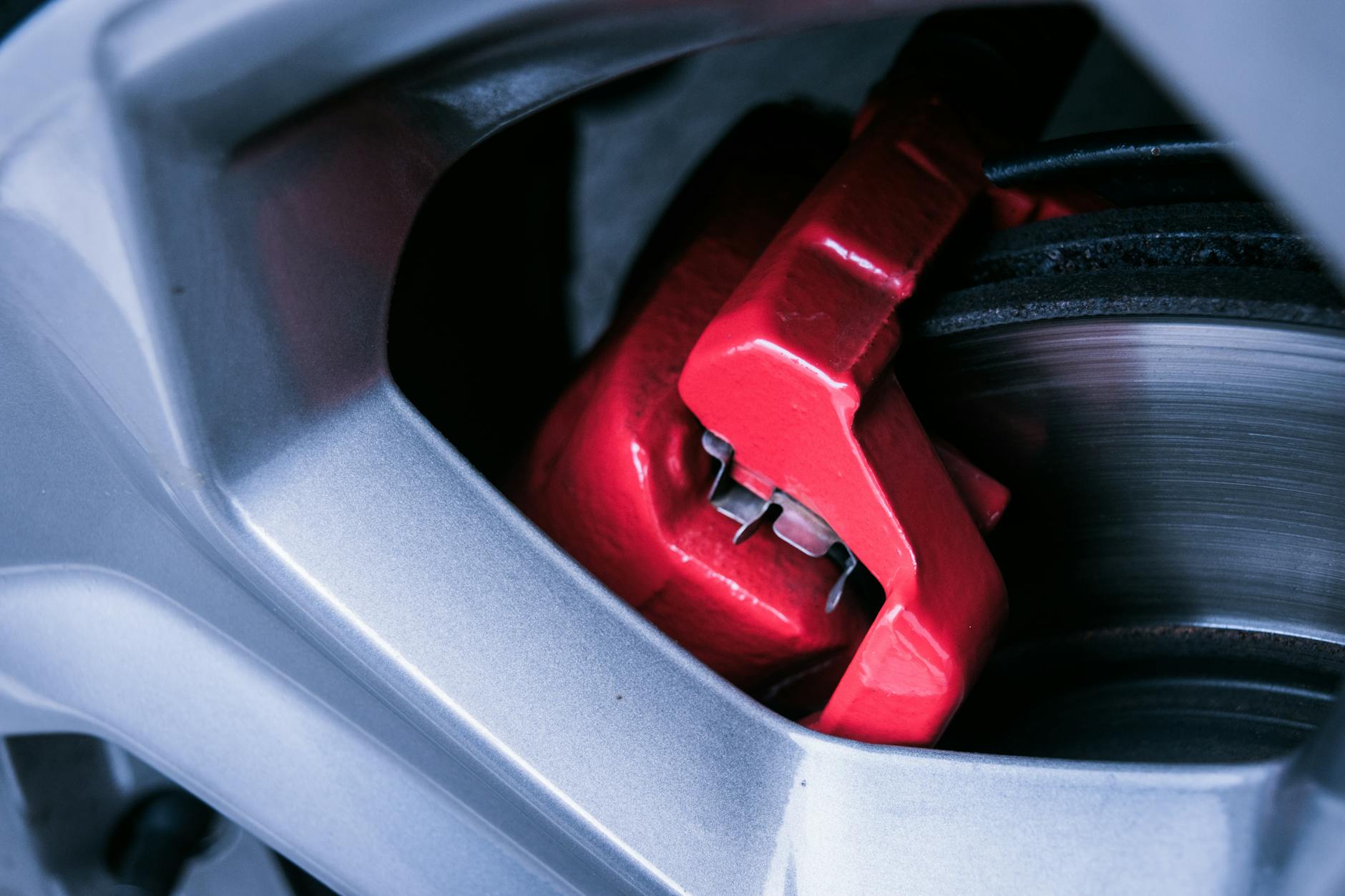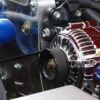Knowing When You Need a Car Brake Check-Up
Knowing When You Need a Car Brake Check-Up
Greetings, readers! Today, we’re going to be talking about an important topic that every car owner should be aware of: knowing when you need a car brake check-up. Your car’s brakes are a crucial component for both your safety and the safety of those around you. So, it’s essential to understand the signs that indicate when it’s time to have your brakes inspected and maintained.
One of the first signs that you may need a car brake check-up is if you notice any unusual noises coming from your brakes. Squeaking, grinding, or squealing sounds can all be indicators of brake problems. These noises can occur due to worn-out brake pads, which need to be replaced promptly to ensure optimal braking performance.
In addition to strange noises, another sign that your brakes may need attention is if you feel a pulsating sensation or vibration when you apply the brakes. This could be a sign of warped brake rotors, which can affect the braking efficiency and lead to longer stopping distances. If you experience this, it’s crucial to have your brakes inspected by a professional as soon as possible.
Furthermore, if you notice that your car takes longer to come to a complete stop or if you have to press the brake pedal harder than usual, it’s a clear indication that your brakes need attention. These symptoms can be caused by a variety of issues, such as worn brake pads, air in the brake lines, or even brake fluid leakage. Regardless of the cause, it’s important not to ignore these signs and to have your brakes checked by a qualified technician.
Another factor to consider is the age and mileage of your vehicle. Over time, the components of your car’s braking system will naturally wear out and require replacement. Therefore, it’s recommended to have your brakes inspected regularly, especially if your vehicle is older or has accumulated a high mileage. Regular maintenance can help detect potential issues before they become major problems, ensuring your brakes are always in top condition.
Lastly, if you notice any warning lights illuminated on your dashboard, such as the ABS (Anti-lock Braking System) or Brake Warning light, it’s crucial to have your brakes checked immediately. These warning lights indicate a fault in the braking system, and driving with a malfunctioning brake system can be extremely dangerous.
In conclusion, being aware of the signs that indicate when you need a car brake check-up is vital for your safety and the safety of others on the road. Strange noises, pulsating sensations, longer stopping distances, increased pedal effort, age and mileage of the vehicle, and warning lights are all indicators that your brakes need attention. By addressing these signs promptly and having your brakes inspected and maintained regularly, you can ensure optimal braking performance and peace of mind while driving.
1. Squeaking or Squealing Noises
One of the most common signs that your car’s brakes need attention is the presence of squeaking or squealing noises. If you notice a high-pitched sound when applying the brakes, it’s a clear indication that something is amiss. These noises are typically caused by worn-out brake pads, which need to be replaced promptly.
Ignoring these sounds and continuing to drive with worn-out brake pads can lead to further damage to your braking system and compromise your ability to stop safely. So, if you hear any squeaking or squealing noises when you brake, it’s time to schedule a brake check-up.
When brake pads wear down, the metal backing plate of the pad will eventually come into contact with the brake rotor. This metal-on-metal contact is what causes the squeaking or squealing noise. The noise is often more noticeable at lower speeds and may disappear or become less audible as the vehicle comes to a stop.
Aside from worn-out brake pads, there are a few other potential causes for squeaking or squealing noises. One possibility is that the brake caliper is sticking, causing the brake pad to rub against the rotor even when the brakes aren’t being applied. Another potential cause is the presence of brake dust or debris on the brake rotor, which can also lead to noise when the brakes are engaged.
Regardless of the specific cause, it’s important not to ignore these noises. Not only can they be annoying, but they can also indicate a problem with your braking system that needs to be addressed. Failing to address the issue promptly can result in further damage to your brakes, potentially leading to more expensive repairs down the line.
If you’re experiencing squeaking or squealing noises when you apply the brakes, it’s best to have a professional mechanic inspect your braking system. They will be able to determine the exact cause of the noise and recommend the appropriate repairs or replacements. Remember, maintaining your brakes is crucial for your safety and the safety of others on the road, so don’t delay in getting the necessary attention for your squeaky brakes.
2. Vibrations or Pulsations
Another sign that your car’s brakes may need attention is the presence of vibrations or pulsations when you apply the brakes. If you feel a pulsating sensation in the brake pedal or notice vibrations in the steering wheel while braking, it’s a clear indication that your brake rotors are warped or unevenly worn.
Warped brake rotors can significantly affect your car’s braking performance and compromise your safety on the road. It’s crucial to address this issue promptly by having your brake rotors inspected and resurfaced or replaced if necessary.
When brake rotors become warped, they no longer provide a smooth surface for the brake pads to make contact with. As a result, when you apply the brakes, the uneven surface of the rotors causes a pulsating sensation in the brake pedal. This pulsation can range from subtle to severe, depending on the extent of the warping.
In addition to the pulsating sensation, you may also notice vibrations in the steering wheel while braking. This occurs because the unevenly worn brake rotors can cause the brake calipers to apply uneven pressure on the brake pads, leading to an imbalance in the braking system. As a result, the vibrations are transmitted through the steering wheel, making it evident that there is a problem with the brakes.
Ignoring these vibrations or pulsations can lead to further damage to your brake system. The uneven wear on the brake rotors can cause the brake pads to wear unevenly as well, reducing their effectiveness and potentially compromising your ability to stop the vehicle safely. Additionally, the vibrations can also affect other components of the suspension and steering system, potentially leading to more extensive repairs.
Therefore, it is essential to address any vibrations or pulsations in your car’s braking system promptly. Schedule an appointment with a qualified mechanic who can inspect your brake rotors and determine the best course of action. Depending on the severity of the issue, they may recommend resurfacing the rotors to restore a smooth surface or replacing them altogether if they are too damaged to be salvaged.
Remember, your safety on the road should always be a top priority. By addressing brake issues promptly, you can ensure that your car’s braking system is in optimal condition, providing you with the confidence and peace of mind you need while driving.
3. Longer Stopping Distances
If you find that your car is taking longer to come to a complete stop, it’s a sign that your brakes may be wearing out. As brake pads wear down over time, their ability to grip the brake rotors and slow down the vehicle diminishes. This can result in increased stopping distances, which can be dangerous, especially in emergency situations.
It’s important to pay attention to any changes in your car’s stopping distances. If you notice that it’s taking longer to stop or that you need to apply more pressure to the brake pedal, it’s time to have your brakes checked by a professional. They will be able to assess the condition of your brake pads and determine if they need to be replaced.
Furthermore, longer stopping distances can also be caused by other factors such as worn-out tires or a malfunctioning brake system. Worn-out tires with insufficient tread depth can significantly reduce the grip on the road, making it harder for the brakes to bring the car to a stop. Similarly, a malfunctioning brake system, such as a faulty brake booster or a leaking brake line, can compromise the effectiveness of the brakes and lead to longer stopping distances.
Regular maintenance and inspection of your vehicle’s braking system are essential to ensure optimal performance and safety. In addition to checking the brake pads, a professional mechanic will also inspect the brake rotors, calipers, and brake fluid to identify any potential issues. They will measure the thickness of the brake pads and determine if they are within the manufacturer’s recommended specifications. If the pads are worn beyond the acceptable limit, they will need to be replaced to restore the braking performance.
Moreover, if the mechanic identifies any other issues with the brake system, such as worn-out rotors or leaking brake lines, they will recommend the necessary repairs or replacements. It’s important not to ignore any signs of brake wear or deterioration, as neglecting the maintenance of your brakes can lead to serious accidents and jeopardize your safety on the road.
In conclusion, if you notice that your car is taking longer to stop, it’s crucial to have your brakes inspected by a professional. Whether it’s due to worn-out brake pads, worn-out tires, or a malfunctioning brake system, addressing the issue promptly will ensure your safety and the safety of others on the road.
Ignoring a brake warning light can have serious consequences for both your vehicle and your safety. When the brake warning light is illuminated on your dashboard, it typically indicates that there is a problem with your car’s braking system. This could be due to a variety of issues, such as worn brake pads, a leak in the brake fluid, or a malfunctioning brake sensor.
If you ignore the warning light and continue driving, you run the risk of further damaging your braking system. This could result in decreased braking performance, longer stopping distances, or even a complete brake failure. In an emergency situation, having a compromised braking system can be extremely dangerous and potentially life-threatening.
Furthermore, ignoring the brake warning light could also lead to more expensive repairs in the future. What might start as a small issue could escalate into a major problem if left unaddressed. By scheduling a brake check-up as soon as possible, you can identify and resolve the underlying issue before it becomes more severe.
When you bring your car in for a brake check-up, a qualified technician will inspect your braking system to determine the cause of the warning light. They will examine the brake pads, rotors, calipers, and brake lines to ensure everything is in working order. If any components are worn or damaged, they will be replaced to restore the proper functioning of your brakes.
In addition to addressing the immediate issue, a brake check-up can also help prevent future problems. Regular maintenance and inspections of your braking system can help identify potential issues before they become major repairs. This can save you both time and money in the long run.
Remember, the brake warning light is there for a reason. It serves as an early warning system to alert you to potential problems with your car’s braking system. Ignoring this warning light can have serious consequences, so it’s important to take immediate action. Schedule a brake check-up as soon as possible to ensure your vehicle is safe and reliable on the road.
5. Unusual Brake Pedal Feel
Lastly, pay attention to the feel of your brake pedal. If you notice any unusual changes, such as a soft or spongy feel, a hard pedal, or a pedal that sinks to the floor, it’s a sign that there may be a problem with your car’s braking system.
A soft or spongy brake pedal could indicate air in the brake lines or a problem with the master cylinder. Air in the brake lines can reduce the effectiveness of your brakes, as it compresses under pressure and doesn’t allow the full force to be applied to the brake pads. This can result in longer stopping distances and a potential safety hazard. If you experience a soft or spongy brake pedal, it’s important to have your brake system inspected and any necessary repairs made as soon as possible.
On the other hand, a hard brake pedal can be a sign of a faulty power brake booster. The power brake booster is responsible for amplifying the force exerted on the brake pedal, making it easier to apply the brakes. If the power brake booster fails, it can result in a hard pedal that requires excessive force to engage the brakes. This can be both inconvenient and dangerous, as it can lead to delayed braking response and increased stopping distances. If you notice a hard brake pedal, it’s important to have your vehicle inspected by a qualified mechanic to determine the cause and make any necessary repairs.
Additionally, if your brake pedal sinks to the floor when you apply pressure, it could indicate a problem with the hydraulic system, such as a leak in the brake lines or a faulty master cylinder. A leak in the brake lines can cause a loss of hydraulic pressure, resulting in a pedal that sinks to the floor and a significant reduction in braking effectiveness. This is a serious issue that requires immediate attention, as it poses a major safety risk. If you experience a sinking brake pedal, it’s crucial to stop driving the vehicle and have it towed to a trusted mechanic for inspection and repair.
In conclusion, any changes in the feel of your brake pedal should not be ignored. Whether it’s a soft or spongy pedal, a hard pedal, or a pedal that sinks to the floor, these are all signs of potential problems with your car’s braking system. Prompt attention and professional inspection are necessary to ensure the safety and reliability of your vehicle’s brakes. Remember, your brakes are one of the most important safety features of your car, so it’s crucial to address any issues promptly to prevent accidents and maintain optimal braking performance.

4000XS Drilled and Slotted Brake Rotor more details on
- Best-in-class all-around performance
- Confident driving in all weather conditions
- Visual Alignment Indicators










